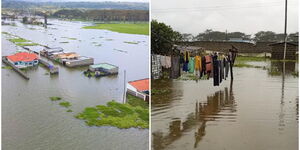University students who skip classes and fail to sit exams will not be allowed to proceed to the next level of study.
This is according to a proposal by the Council of University Education (CUE) which wants institutions of higher learning to ensure respective senates approve the lists of students who move to the next academic class.
“Develop a framework for ensuring that no student moves to a consecutive year of study until all requirements for a particular year of study are fully met,” reads the CUE report presented to Education Cabinet Secretary Amina Mohammed.
It is a common practice for students to skip classes in universities since lecturers are rarely in a position to tell who is absent especially in common units where numbers are often high.
[caption caption="File Photo of Students"] [/caption]
[/caption]
The students then re-appear on examination day and sit for the paper, despite not attending all the lectures.
If CS Mohamed approves the proposal, lecturers and academic staff who frustrate students' progression to the next class, especially in approving research projects, will also be held accountable.
“Put mechanisms in place to ensure members of staff responsible for hindering student progression irregularly are held accountable,” reads the report.
In one of the far-reaching proposals, the commission wants the creation of a regional university system by merging universities within the same geographical locations and converting most of the existing universities into constituent colleges or campuses.
“This would be similar to the practice in the UK with University of London System, the US with California University System and in Rwanda where all universities were merged and placed under an umbrella University of Rwanda system,” states the report.
The report titled “Policy Advisory on Rationalisation of Universities and Programmes in Kenya”, further adds that the creation of the campuses from existing universities should be based on national development needs, existing infrastructure and resources, and regional balance.
“For example, in Mombasa, there could be a focus on marine ecology and oceanography and in Turkana a focus on arid lands and oil studies, but all as colleges of one national university.
"The rest of the public universities that do not fit this model will be closed,” the report says.
[caption caption="CS Amina Mohamed"] [/caption]
[/caption]












